The choir breaking down cancer taboos
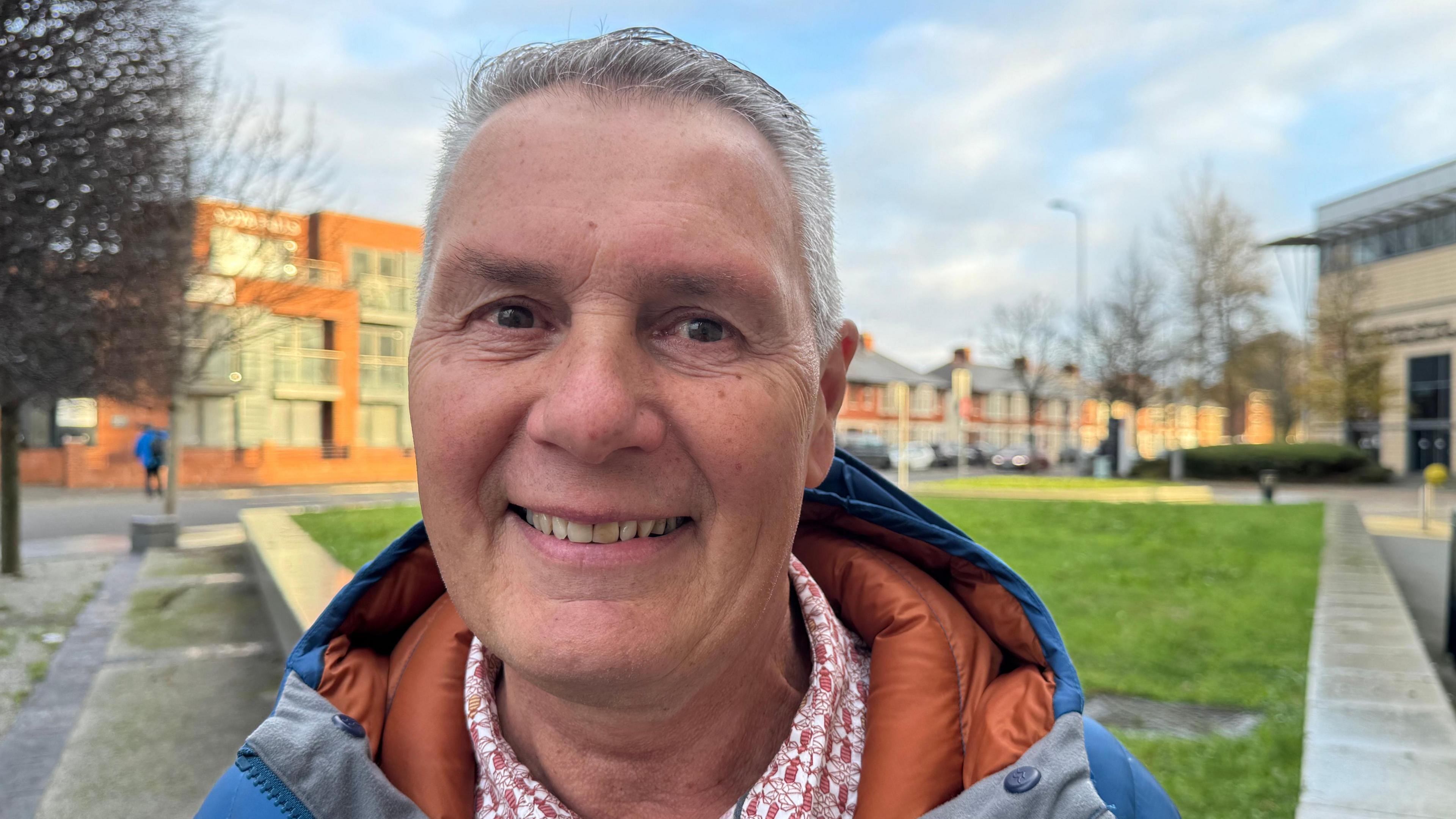
Jeff Price had advanced Prostate cancer with no symptoms
- Published
A man who discovered he had late stage prostate cancer without any obvious symptoms is urging other men to ensure they get tested.
Jeff Price, 68, from Llantrisant, Rhondda Cynon Taf, was diagnosed with prostate cancer which had already spread to his bones in 2022.
He now has open discussions with other members of his choir in an attempt to break down taboos about the disease.
Pioneering research which is taking place at Cardiff University could help develop treatments for people in Jeff's position in the future.
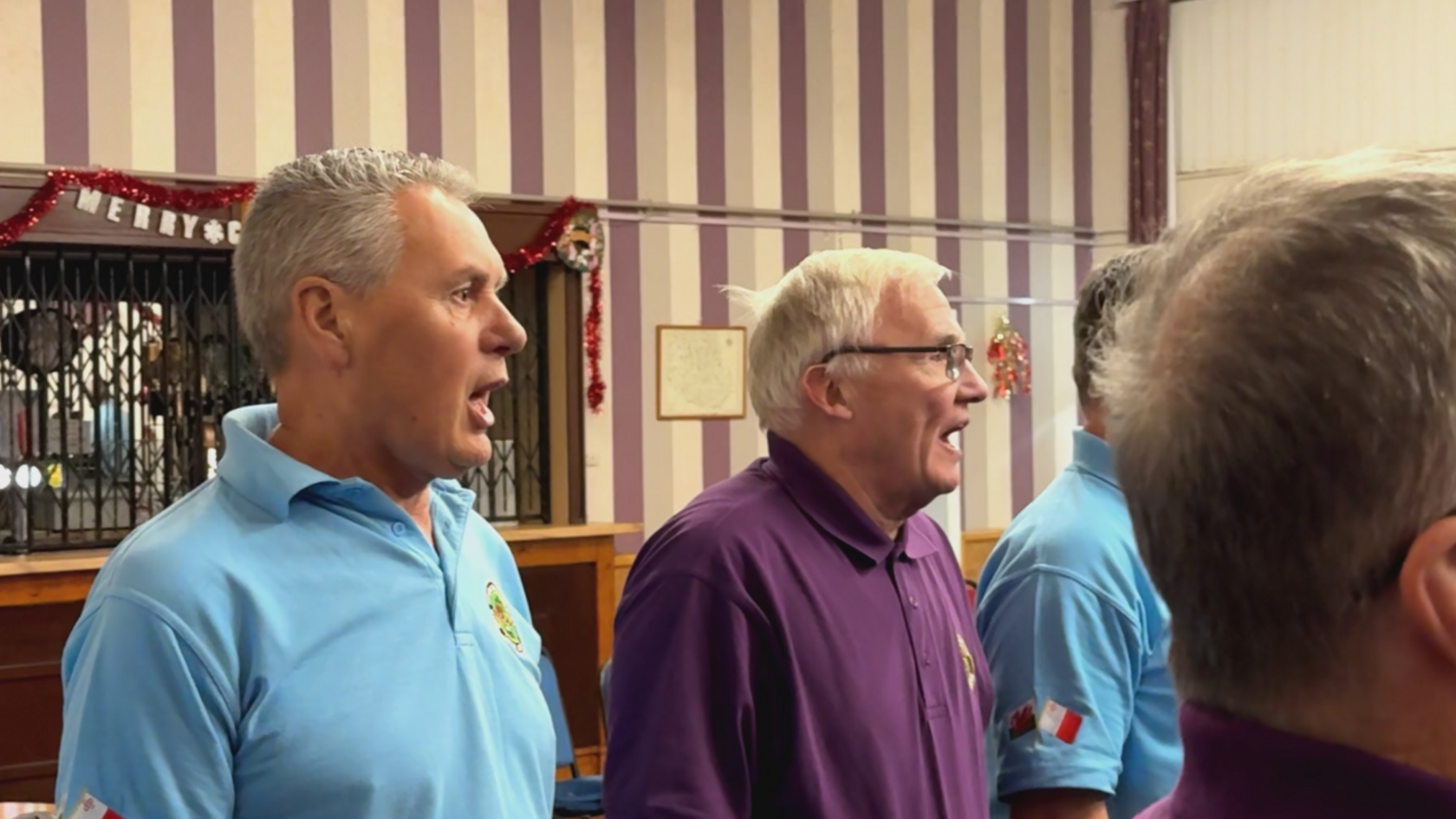
Jeff Price, singing with Llantrisant Male Choir, has talked to members about cancer detection
Jeff was told he might only have a year to live when he was diagnosed with prostate cancer.
There had been no obvious symptoms such as a need to urinate more frequently or pain during urination.
Jeff says he would go to the toilet more frequently after drinking beer, but not in a way that caused him concern.
"I did go to the toilet, but any more than normal? I didn't think so," he said.
"It just sort of crept up on me. I had no idea that I could have had prostate cancer. None at all. It was very strange and a shock."
A sudden pain led to investigations and ultimately a diagnosis of cancer.
"The scans revealed it had gone from my prostate into my bones which sounds very similar to what Sir Chris Hoy revealed recently," he said.
The six-time Olympic cycling champion Sir Chris said there needed to be more conversations about health between men after revealing his terminal cancer.
I'm more grateful for each day - Sir Chris Hoy
- Attribution
- Published5 November 2024
Hope WhatsApp can save black men at risk of cancer
- Published28 November 2024
Jeff decided he wanted to share his diagnosis, first with his closest friends and then with about 50 other members of the Llantrisant Male Choir.
"I say 'look I've got this, get checked guys, you have to get checked'," he said.
Jeff believes men are unlikely to talk about medical issues without a prompt because it is not seen as "macho".
But after revealing his condition, a number of other members of the choir said they had prostate cancer too.
Before and after practices, they often now talk about the condition which affects one in eight white men, one in four black men and one in 13 men from other ethnicities.
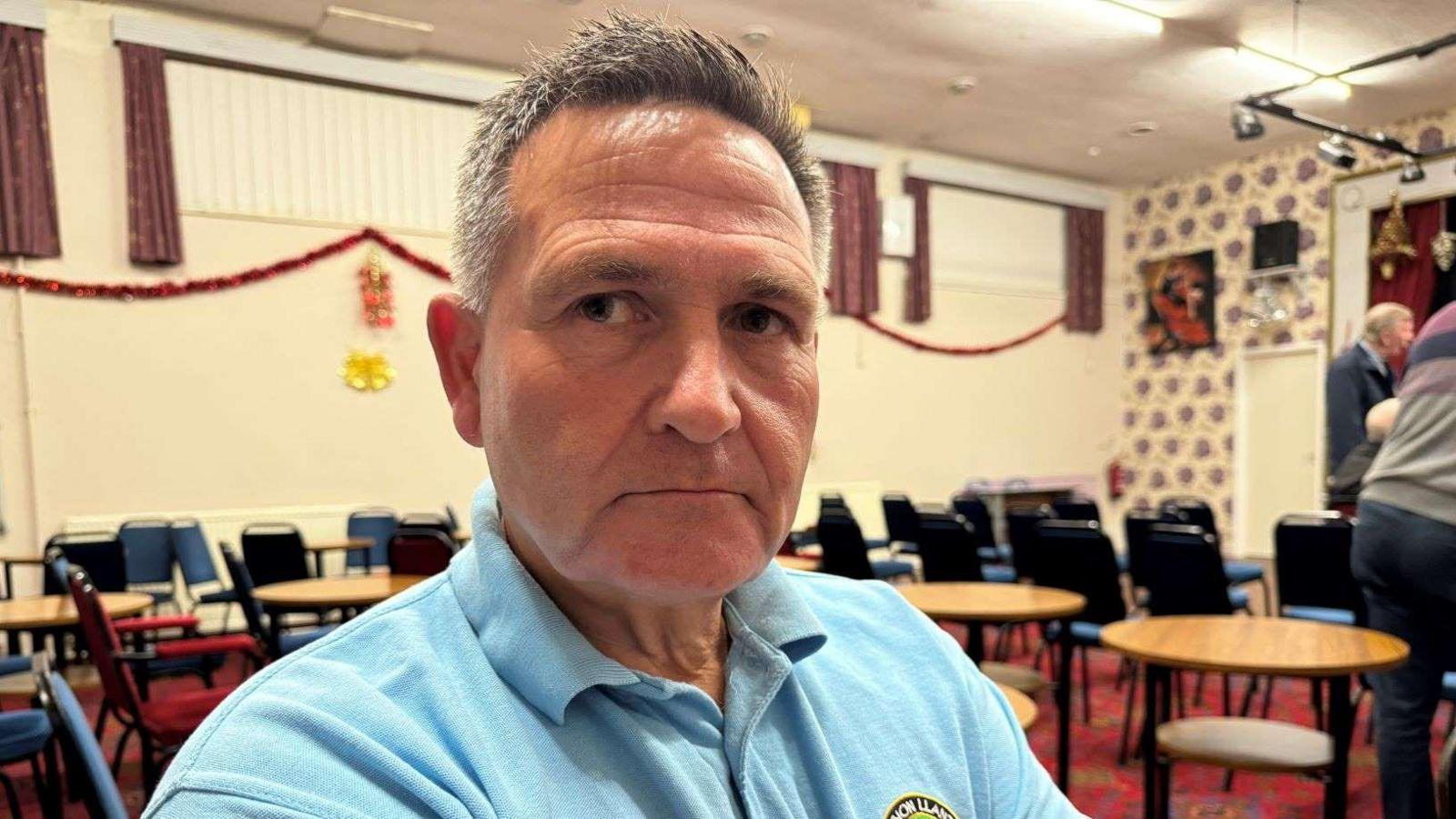
Dave Crabb had prostate cancer but has now recieved the all clear
Choir member Dave Crabb, 62, found out he had prostate cancer nearly five years ago after a friend urged him to get tested.
"I had a prostatectomy [surgery to remove the cancer]," he said.
"I get tested every six months now and there's negligible trace.
"The recovery rate is incredible, but men just don't get tested.
"I've seen two of my youth rugby boys, got them tested and they've both come back saying 'Dai we've got it. If we hadn't met you we probably wouldn't have known about it, and it's just luck of the draw'."
Colin Williams, 64, sends out regular WhatsApp reminders to make sure other choir members consider getting themselves tested and provide support for each other if needed
"We call the choir the man club anyway, it's the best man club you'll ever join," he said.
"Because of the time we spend together we trust each other and we help each other out a lot.
"It is a man club so it's easy to talk to each other about anything. There's no taboo subjects for the boys in the choir."
Tests are under way to establish the effectiveness of groups discussing their health through chat groups such as WhatsApp.
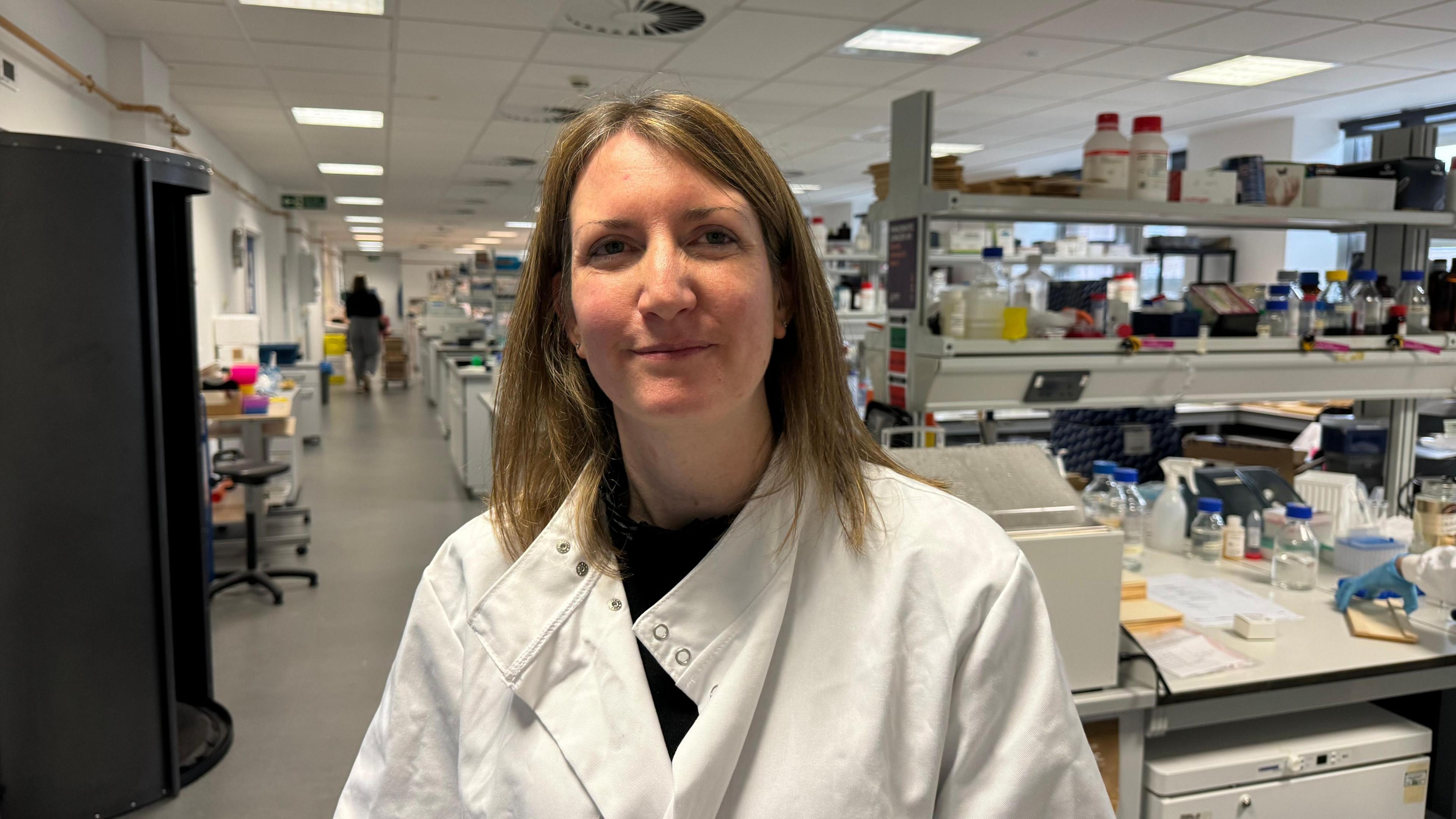
Dr Helen Pearson is leading research to improve treatments for advanced prostate cancer
Cardiff University is carrying out research which it is hoped will provide help for people such as Jeff whose prostate cancer is advanced when they discover it.
Dr Helen Pearson is leading the research into the molecules that encourage cells to grow abnormally.
She said: "If we can identify those molecules and target them, we can stop the cancer cells from growing, but also we think we might be able to use these molecules to sensitise to current treatments."
She hopes that will enable patients who have later stage cancer to receive treatments that might help for longer.
However, the work is at an early stage and Dr Pearson said it may be longer than 10 years before some of the work can be used regularly to improve outcomes for patients.
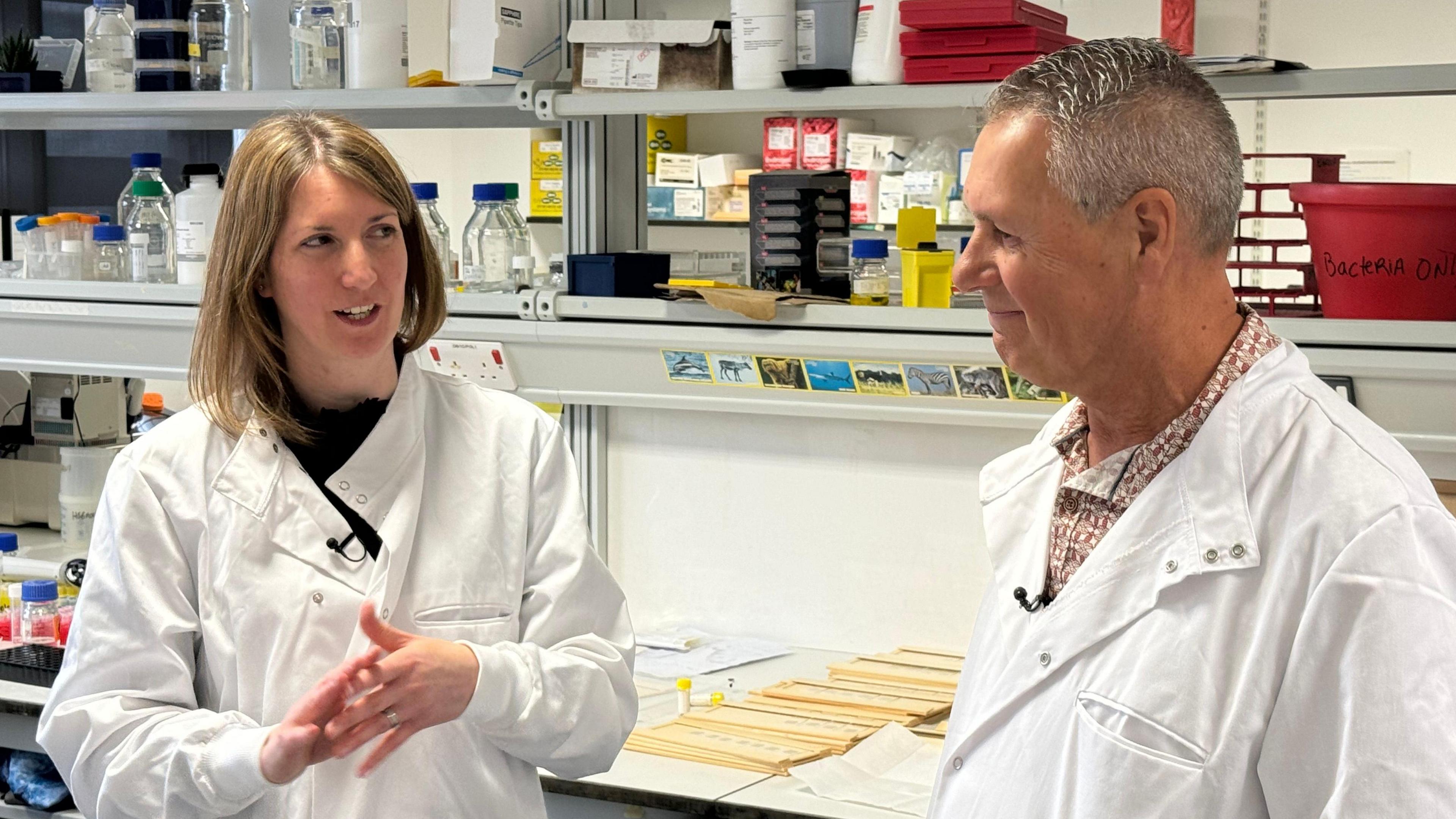
Dr Helen Pearson and Jeff Price have chatted about the research
After witnessing the work in the laboratory, Jeff said "it's a real eye opener".
A combination of treatment to stop the progression of the cancer and a healthy lifestyle means that Jeff continues to feel well.
He also said he talks to anyone he can about prostate cancer, even strangers at a bus stop if they appear to be over 50.
Before he was diagnosed, Jeff said he was not particularly bothered about birthdays - but two and a half years after being given a year to live, he's looking forward to his next one.
"I celebrate the birthdays now," he said.
"I've got a birthday in three months, 69 and then obviously a big one in 15 months.
"That'll be a bigger celebration. Fingers crossed."